Alfred Ramcharan served as administrator at early 1960s External Aid Office conferences, while he studied education at Macdonald College and McGill
The Alfred Ramcharan story is fascinating – including the information that, before he became a highly regarded math teacher at Malcolm Campbell High School, he taught elementary and secondary school in Trinidad for several years, without a formal secondary school education.
That would have been a great formative experience – figuring out how to perform effectively as a teacher, through a process of what I assume may have been self-education and learning by doing, in classroom settings in Trinidad.
It’s also clear that, without formal training at the secondary level, Mr Ramcharan in some way acquired a strong foundation in advanced secondary mathematics.
The above-mentioned formative-experiences story is outlined in a research draft prepared by Ken Kingsbury:
Dear Fred – Alfred Ramcharan and the EAO – LoRes
With regard to the above-noted draft, I want to share some recent correspondence with Ken Kingsbury:
Nov. 12, 2017 – Jaan Pill
Jaan Pill: It’s a delight to know that comments about Alfred Ramcharan continue to accumulate – including a theory [as outlined below] about how the term “Freddie the Whip” originated.
Just want to share a small note regarding the point in the excellent draft where you note, with exclamation mark, that Mr Ramcharan paid himself $30 not $25 for administrative chores, on a particular occasion.
My sense as an observer is that he is being judged for theft of $5 but without a judge and jury. It occurs to me that some other reason for the change may be plausible. For example, the authorities may have determined that he did such a great job as administrator that he should get an extra $5. As well, if he was in fact a thief then it is perhaps unlikely that the loss of the $5 would not have been noticed, by people whose task it was to keep track of financial records, and it’s unlikely that he would have been asked to serve as an administrator on future occasions.
Nov. 12, 2017 – Ken Kingsbury
Ken Kingsbury: Good point, Jaan. No intention of implying theft!
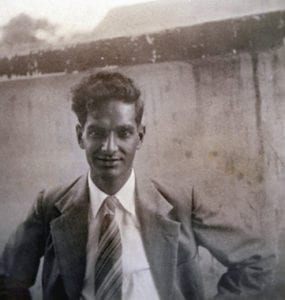
Alfred Ramcharan. The photo is from the draft PDF that accompanies the post you are now reading. The caption reads: Source: Crowley family website.
They may have renegotiated his fee, or the $5 was for some out-of-pocket expense, etc.
I’ll fix that – or just drop it, it’s not important.
At a previous post, Bert Eccles has shared the following comment
Bert Eccles: Although Mr. Ramcharan was at MCHS during my four years there, I never had him as a math teacher. In spite of that, I was aware of his nickname virtually from the start, as a friend who did have him informed me of it.
According to the story I was told, the dynamic sobriquet was given because of the whiplike sound that the creases in Mr. Ramcharan’s trousers made as he walked briskly through the corridors.
I am curious to know whether the report is accurate and also when the nickname originated. It would be particularly interesting to know who came up with the description, as it has apparently lasted for decades!
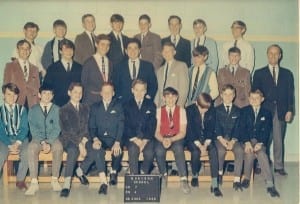
As noted at a previous post, Graham Chartier, a Morison and Malcolm graduate, has shared with us this awesome Grade 7 Morison photo from 1966. I’ve posted the photo by way of helping to position Morison School in my mind, in the context of reading the recent reflections from Bert Eccles. Click on the photo to enlarge it; click again to enlarge it further.
On a similar theme, there was a legendary French teacher at MCHS who was given the unflattering nickname of “Captain Queeg” in 1967-1968. A classmate of mine coined the expression after determining that he saw behaviouristic parallels between the teacher and the key character from Herman Wouk’s Pulitzer Prize novel “The Caine Mutiny”. Humphrey Bogart portrayed the paranoid Queeg in Edward Dmytryk’s 1954 movie version of the book.
Each day as our Grade Eleven French class was about to start, we lined up outside the teacher’s classroom. One classmate (not the creator of the nickname) took great joy in standing at the rear of the line and bellowing out, “Hey Queeg!” when the teacher invited us inside. Although this was obviously rude and uncalled-for, it was also quite funny at the time – particularly since the teacher never acknowledged what had been said. Either he was hard of hearing or he felt it would be politically best just to ignore it.
Further references to “Captain Queeg” appeared in “The Invisible Circle” – not surprisingly, since the expression’s originator was one of the four co-creators of that 1968 “underground” MCHS newspaper.
Freddie the Whip and Captain Queeg: two unforgettable nicknames! Undoubtedly there were others also.
MCHS in the Sixties
Another previous post is entitled:
Bert Eccles (MCHS 1968) shares his reflections about Malcolm Campbell High School in the Sixties
Commentary
From what I recall seeing and hearing, and on occasion participating in myself, when I was a student at schools run by the Protestant School Board of Greater Montreal (I graduated from MCHS in 1963), both students and teachers were capable of a lot of good-natured bantering back and forth.
It was also evident that sometimes it would have been hard (and sometimes it would not have been hard at all), for a neutral observer to determine, the point at which goings-on, on the part of both students and teachers, would proceed from good-natured fun to phenomenon where other aspects of human nature were given free rein.
As has always been the case, I would say, in human history, human nature within a school system, as within a given society outside of the schools, can manifest itself in many ways.
I note from comments I’ve read that Mr Ramcharan had a skill at classroom management. Then, as now, such a skill is essential, in order for good teaching (and learning) to occur.
As a retired teacher, I marvel at how much I have learned, in schools across the Greater Toronto Area, about human nature and the many ways – the majority of them delightful, and some less delightful – in which it can manifest itself.
I also marvel at how ways of seeing things are at play in schools, and within society. There is, that is to say, an official curriculum, and an unofficial one.
I have a friend who was an administrator before retirement. He was principal at the last school where I taught, when I was an elementary teacher in Mississauga, at Munden Park School, during the final eleven years of my teaching career. Before that, I had taught at the Scarborough Board of Education.
Earlier, I was a special education teacher with the Metropolitan Toronto School Board. At the start of my career for two and a half years in the early 1980s I worked as a supply teacher at the latter board, at a time when I did not yet have a teaching degree. What I learned in those two and a half years turned out to be a key part of my own formative experience (for better or for worse) with regard to what teaching and school systems are about.
One way to sum up what I learned as a teacher is a saying, from the principal I worked with at Munden Park, and with whom I’ve organized many Jane’s Walks.
The saying is that, from his perspective as an administrator, “Perception is reality.” That saying doesn’t capture everything, but it covers a lot of ground.
Leave a Reply
Want to join the discussion?Feel free to contribute!

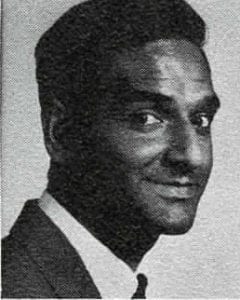
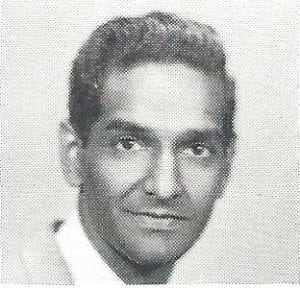
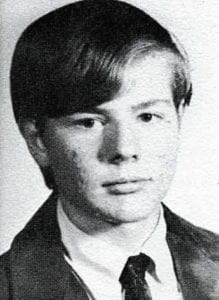
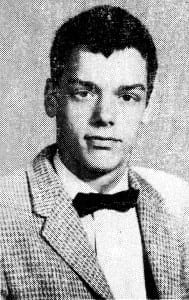
I had Fred in grade four or five ( 1962) at Maple Hill Elementary in Montreal North.
We were calling him the “Whip” back then.
He taught us neat arithmatic tricks.
I did not have Fred Ramcharan as a teacher. From all that I have learned about him, he was a source of inspiration for many students. I am really pleased I was able to learn something about his life journey.
I had Mr Ramcharan for math class. I always considered him to be a math genius, and he inspired me to strive to be the same. He showed me the way math is intertwined with science and nature…something that I only learned from him. He was a great guy, even though he kicked me out of class so many times for being class clown. In spite of that, we had this mutual admiration for each other from our obsessive passion for math. RIP Mr Ramcharan, I know you are one with the universe.
Mr Ramcharan continues to be a source of inspiration for so many people. What a good man he was.